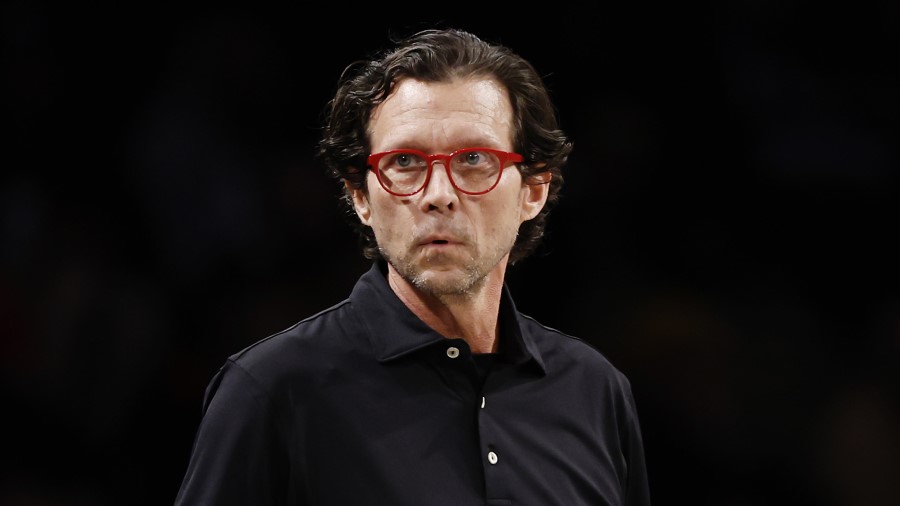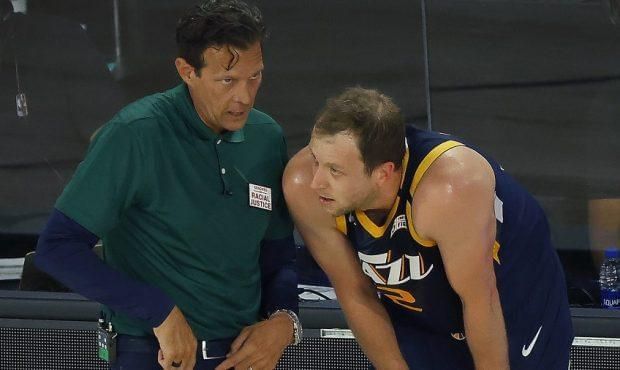In the world of professional basketball, coaching often transcends the ability to design plays and manage game strategy; it encompasses the art of player development. Quin Snyder, head coach of the Atlanta Hawks and former coach of the Utah Jazz, stands out as a prominent figure in this realm. Known for his innovative coaching style and commitment to player growth, Snyder has made significant contributions to the development of numerous players throughout his career. This article delves into Quin Snyder’s philosophy, methodology, and notable success stories, highlighting his impact on player development in the NBA.
The Philosophy of Quin Snyder

At the core of Quin Snyder’s coaching philosophy is a belief in continuous improvement. He views every player as a canvas, capable of evolving with the right guidance and support. Snyder’s approach to player development can be broken down into several key principles:
- Individualized Coaching: Snyder emphasizes the importance of tailoring coaching strategies to meet the unique needs of each player. He takes the time to understand their strengths, weaknesses, and areas for growth.
- Holistic Development: Beyond technical skills, Snyder focuses on mental and emotional aspects, fostering resilience and a growth mindset in his players.
- Feedback Loop: Snyder values constructive feedback, encouraging players to learn from their mistakes and build on their successes.
- Collaboration: He promotes open communication between players and coaching staff, creating an environment where players feel comfortable expressing themselves.
Methodologies in Player Development

Quin Snyder utilizes a variety of methodologies to enhance player skills and overall performance. These techniques are not only effective but also reflect modern trends in sports science and analytics.
Data-Driven Approach
In the age of analytics, Snyder leverages data to inform his coaching decisions. He uses advanced metrics to assess player performance, identify trends, and develop tailored training regimens. By analyzing shooting percentages, defensive efficiency, and other statistics, Snyder can pinpoint areas for improvement. For example:
- Utilizing shot charts to help players understand their shooting patterns.
- Implementing defensive analytics to enhance individual and team defense.
Skill Development Sessions
Snyder organizes dedicated skill development sessions that focus on specific areas such as shooting, ball-handling, and defensive techniques. These sessions often include:
- One-on-one drills tailored to a player’s position and role.
- Game-situation simulations to prepare players for real-game scenarios.
- Video analysis sessions to break down gameplay and identify improvement areas.
Mentoring and Leadership
Recognizing the importance of mentorship, Snyder encourages veteran players to take younger teammates under their wing. This peer-to-peer learning fosters a culture of accountability and growth within the team. Snyder himself serves as a mentor, providing guidance and support to players both on and off the court.
Success Stories Under Quin Snyder
Quin Snyder’s player development strategies have yielded impressive results, particularly during his tenure with the Utah Jazz. Several players have flourished under his guidance, transforming their careers and contributing significantly to the team’s success.
Donovan Mitchell
One of the most notable success stories is that of Donovan Mitchell. Drafted by the Jazz in 2017, Mitchell quickly became a star under Snyder’s tutelage. Snyder’s emphasis on skill development and confidence-building played a crucial role in Mitchell’s rise:
- Scoring Ability: Snyder helped Mitchell refine his shooting mechanics, leading to improvements in his three-point shooting percentage.
- Defensive Skills: Snyder’s defensive schemes allowed Mitchell to become a more effective two-way player, enhancing his reputation as a formidable defender.
- Leadership: Snyder encouraged Mitchell to embrace a leadership role, fostering his growth as the team’s primary scorer and playmaker.
Rudy Gobert

Another key player who thrived under Snyder is Rudy Gobert. The two-time Defensive Player of the Year benefited from Snyder’s focus on defensive fundamentals and teamwork:
- Defensive Schemes: Snyder’s innovative defensive strategies maximized Gobert’s shot-blocking and rebounding abilities, making him a central figure in the Jazz’s defensive identity.
- Offensive Role: Snyder also worked on Gobert’s offensive game, helping him develop a more effective pick-and-roll partnership with guards.
Challenges and Adaptations

While Snyder’s player development methods have proven successful, they are not without challenges. Adapting to the evolving landscape of the NBA requires continuous learning and flexibility. Snyder has faced several challenges, including:
- Player Resistance: Some players may be resistant to change or hesitant to adapt their playing style, requiring Snyder to employ patience and adaptability.
- Injury Management: Injuries can derail player development, necessitating alternative training methods and rehabilitation strategies.
- Team Dynamics: Balancing individual player growth with overall team chemistry can be complex, especially when integrating new players.
To address these challenges, Snyder remains committed to fostering a positive team culture and ensuring that every player feels valued and supported in their development journey.
The Future of Player Development
As Snyder continues to evolve as a coach, so too does the landscape of player development in the NBA. Emerging trends include:
- Technology Integration: The use of wearables and performance tracking software is becoming increasingly common, providing coaches with real-time data on player health and performance.
- Mental Health Awareness: There is a growing recognition of the importance of mental health in sports. Coaches are now focusing on the psychological well-being of players as a crucial component of development.
- Global Scouting: As the NBA becomes more international, understanding and integrating players from diverse backgrounds is essential for effective development.
Quin Snyder’s commitment to player development has established him as one of the top coaches in the NBA, demonstrating that success extends beyond strategy and game management. His individualized approach, innovative methodologies, and focus on holistic growth have produced remarkable results for players like Donovan Mitchell and Rudy Gobert. As the NBA continues to evolve, Snyder’s ability to adapt and embrace new trends will undoubtedly impact the next generation of players. In the end, Snyder exemplifies that the art of player development is not just about honing skills; it’s about building confidence, fostering teamwork, and nurturing the next wave of basketball talent.